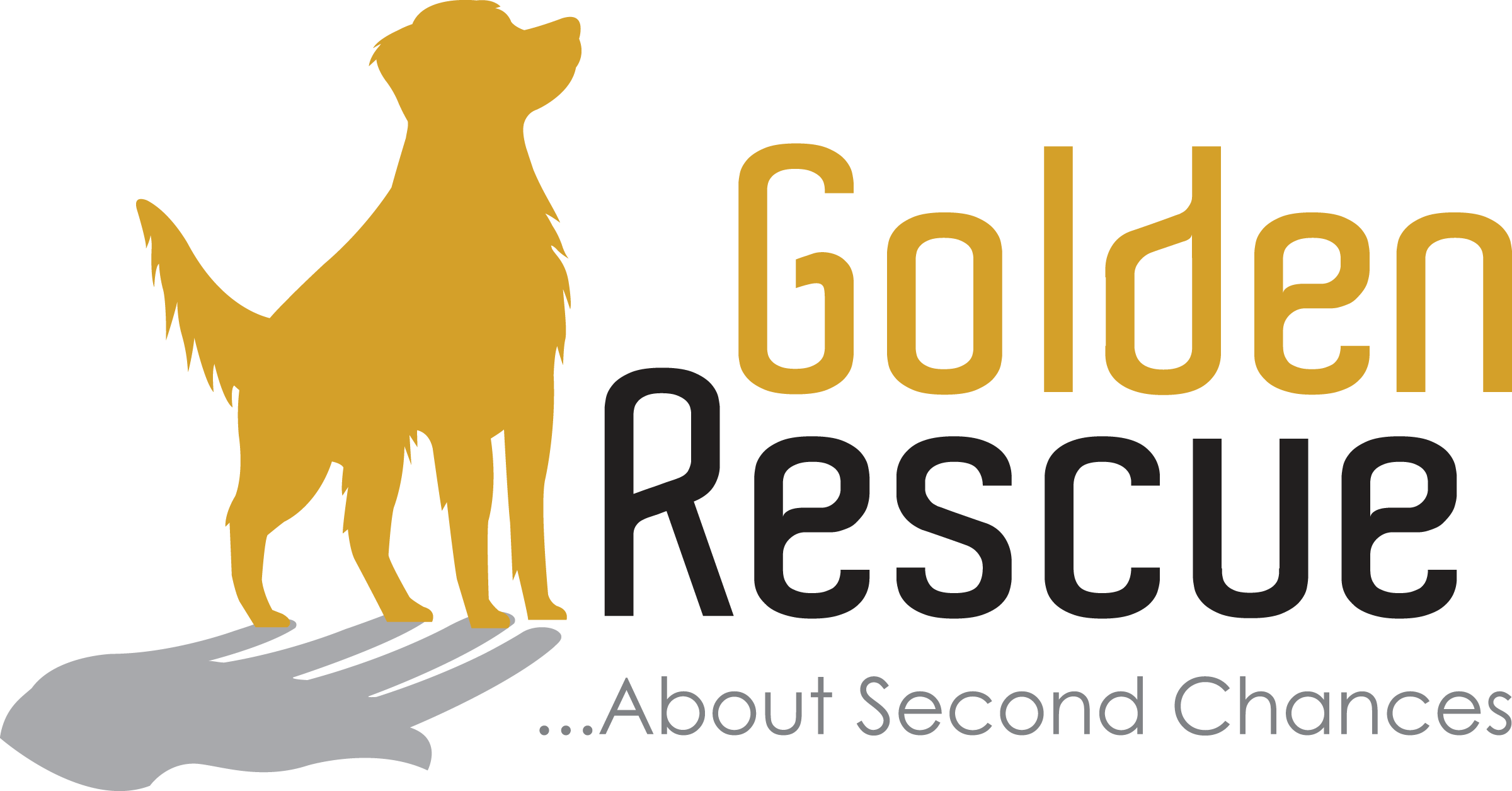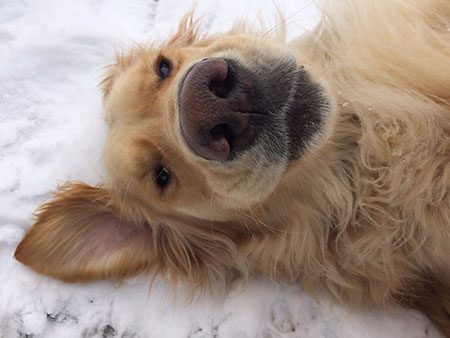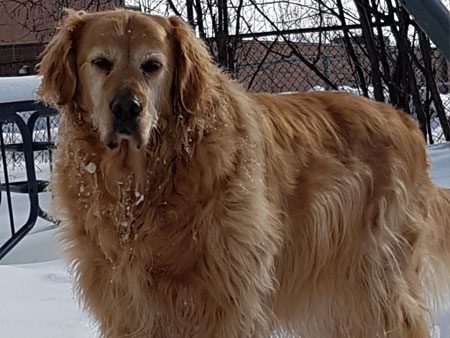Why did you start the International Rescue Mission of Love?
In 2016, we were approached by rescue-minded volunteers in Istanbul to see if we could help rescue abandoned Goldens from their streets. Five U.S. rescue groups were already helping them and they wondered if Canada might join the rescue mission. Turkey has had a long history of strays and they are a part of their culture. A number of years ago, Golden Retrievers were introduced into their society and they quickly became a status symbol. However, when the economy faltered, many of these Goldens were simply abandoned on the streets and in the forests to fend for themselves. Goldens, unlike some other breeds, do not fare well on the street ~ they are typically not aggressive enough and subsequently suffered more than some other breeds. Two of our board members visited Istanbul to observe firsthand what was going on and it was this visit that convinced us to get involved. Rescue Mission Of Love
When you rescue internationally, how does that impact the Goldens who need rescuing in Canada?
Simply put, it doesn’t! Our international efforts complement our mission here at home. Domestic rescuing will always take precedence and we are actively expanding in Canada. In fact, our international rescue efforts have garnered so much publicity that it has helped put Golden Rescue on the map nationally. Right now, we have adopters in every province with volunteers and foster families throughout the country.
What is your process to bring Goldens into Canada from other countries?
We can only help countries where there are dedicated volunteers in the country of origin who are organized, funded, and educated in the rescue process. These street angels do the heavy lifting. Our job, although difficult at times, is small in relation to what these international volunteers must do. They rescue the dogs predominantly from the streets or forests. They put them in their own shelters, and then, if necessary, nurse them back to health. We work very closely with these rescue partners to ensure we are aware of any health concerns in the dogs selected to come to Canada. Goldens are checked by a veterinarian and tested for things like leishmania and brucellosis. The Goldens are up-to-date on all their vaccinations and bloodwork and other tests are done. Soon after they arrive in Canada, the Goldens are vet-checked to ensure they meet Canadian health standards. If additional treatment is needed, our Director of Golden Care works closely with our veterinary partners to develop a plan of care. We are always working to ensure the safety, health, and well-being of the Goldens and humans involved, both here and abroad.
How do you determine which Goldens come to Canada?
We have met, in person, with the rescuers in Istanbul and Cairo and we trust our rescue partners implicitly. They know we will not take aggressive Goldens or those with contagious diseases. They send us information and photos of Goldens they would like us to consider and we review and approve the ones we believe we can rehome. In the true spirit of rescue, we also take some who need medical attention if we know we can help them.
How do you know a potential adopter might be interested in an international Golden?
We recently added a question to the adoption application, “Would you consider adopting an international Golden?” So far, more than 95% have answered ‘yes’, so we know we have willing adopters for international Goldens. If we are unable to help potential adopters, many will turn to other sources or unknowingly buy from a puppy mill or backyard breeder…and that doesn’t help the homeless pet situation. At any given time, we have 1,000+ adoption applications so no matter what we do, we will disappoint some families.
How easy is it to find adopters for the international Goldens?
There are many Golden angels out there. In the true spirit of rescue, most are open to adopting a domestic or international Golden, as a Golden in need is a Golden in need. We have had no trouble finding homes for blind, three-legged or senior Goldens either. It is very heartwarming when people step up to rescue one of our Goldens with special needs.
What does the $1,500 adoption fee cover?
It covers medical care, neutering (in most cases), vaccinations, tests, microchips, crates, airline fees, and initial vet fees in Canada. Our average cost per Golden to go through our program (international or domestic) is approximately $2,500. The adoption fee only covers a portion of this. This is why fundraising efforts are so critical to our ability to help as many Goldens as possible.
What does Golden Rescue do to ensure these international Goldens don’t put people or our domestic pets at risk?
Before travelling to Canada, the international Goldens are in our partner shelters for a number of months, so although they aren’t technically quarantined, they are under observation. They are thoroughly vet-checked and treated for anything worrisome and we test for contagious diseases like leishmania or anything common to the region. They are also vaccinated for rabies, distemper, parvo, etc., and are treated for fleas and ticks. All international Goldens are vet-checked within a few days of arrival and given a full wellness exam, which includes bloodwork and a fecal test. If anything untoward is discovered, we treat them immediately. We have done our due diligence and we trust our rescue partners in Istanbul, Cairo, and Mexico City. In fact, our Board members visited Istanbul and Cairo personally to visit the shelters and meet with our rescue partners to ensure their credibility.
How are you addressing health concerns, such as canine flu, distemper, rabies, brucellosis, etc.?
We aren’t currently bringing any Goldens from the areas with reported outbreaks of canine flu and/or brucellosis. All the Goldens coming to us are vet-checked and given a rabies and distemper vaccine prior to being approved for travel to Canada.
How is the health of the international Goldens arriving in Canada?
In general terms, no better or worse than the Goldens we help from Canada. Some have injured limbs but very few have major medical issues. In Canada, we will rescue a Golden with serious health issues if the Golden can be saved. If there are any serious conditions discovered with the international Goldens, we would not transport them here…rather they would be treated in their own country first.
How are most of the Goldens behaviourally?
Most of them are extraordinarily sweet and have adjusted to their new families beautifully. Some have had behavioural issues like food guarding, domination or a high prey drive. With time, patience, and love, they have become happy, well-adjusted family members. Again, we have not seen more behavioural issues in the international Goldens than the domestic Goldens we rescue. We are a rescue group and we deal with behavioural issues all the time. In fact, it is our biggest cost after vet care. We believe that every Golden who comes into our care deserves a second chance and other than aggression (i.e. remorse-less biting), we will do everything possible to help our Goldens live a happy and safe life.
Where do Goldens go when they arrive in Canada?
Canada does not require animals to be quarantined, so they go directly to their foster-to-adopt (FTA) families. We decided right from the beginning to find adoptive families for each international Golden. With all they have been through in their lives, including living in a cage or kennel, we didn’t want to house them temporarily with foster families only to be uprooted again in a few weeks. The intent of the FTA family is to adopt them; however, we give the FTA family a week to determine if they’re a good fit. What these Goldens need (in addition to good food and lots of love) is stability and to feel safe.
What is the difference between a foster family and a foster-to-adopt (FTA) family?
Foster families foster ~ a temporary setting where we can assess the Golden’s health, behaviour, and make an informed opinion on what forever family would be the best fit. Foster-to-adopt (FTA) families have the intention of adopting the Golden. We are careful to place Goldens with FTA families so that they have the best possible chance of success; however, despite our best efforts, a few have been returned and re-homed.
What is the adoption success rate with FTA families?
Over 98% of FTA placements lead to successful adoptions. Some have to be moved to find more suitable families (i.e. issues with cats). If you want to read what a small sampling of adopters have had to say, please click on this link: Testimonials For Mission Of Love
Are the Goldens sedated before they travel?
No, we want them to be fully alert and able to move quickly and easily so they will land properly on their legs if they hit any turbulence during the flight. Research tells us that animals can be injured during a flight if they’re sedated. We know the flight is a traumatic experience for them, but we believe one more day of unpleasantness is a small price to pay for a happily-ever-after.
What is the process for clearance through Canada Customs?
Golden Rescue is required to supply Canada Customs with the appropriate paperwork. Sometimes a Border Services veterinarian will take extra time to examine their passports or check out the dogs as part of the clearance process. Canada requires all dogs to have their rabies vaccination and be in good health. Our health protocols far exceed Canadian standards.
How are the Goldens transported to Canada?
Some travel to Canada on a cargo plane and we have transported 10-50 Goldens on a cargo flight. Others come here accompanied by flight parents ~ travellers who are willing to bring Goldens with them. Either way, our rescue partners in Turkey, Egypt, and Mexico prepare them for the flight (i.e. getting them medically checked and tested, microchipped, passports in order, etc.). They transport them in person to the airport, exercise them before putting them into crates, and check them in for their flight. Our volunteers and the vast majority of our adoptive families meet them upon arrival with open arms…and their new lives begin.




